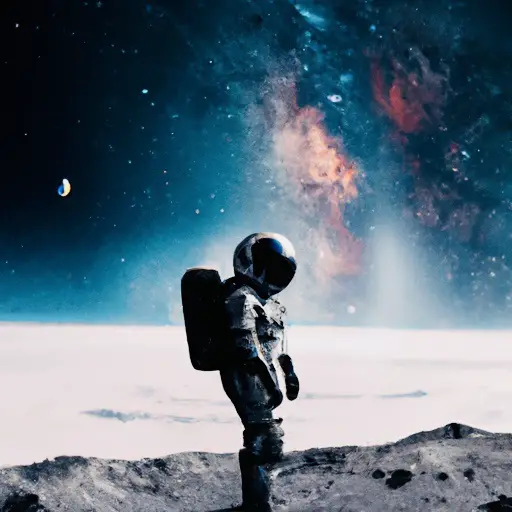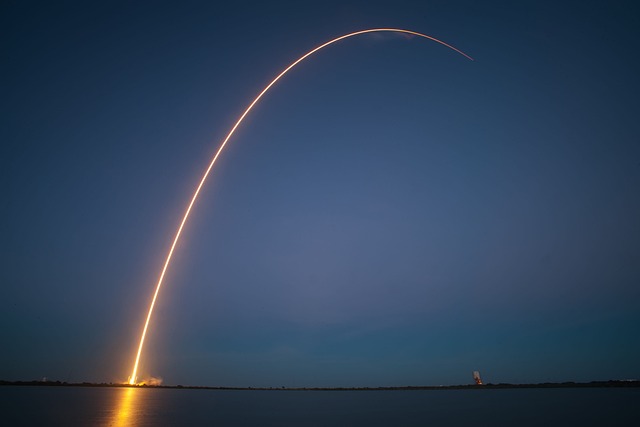
Who Owns Outer Space?
Outer space refers to the expanse that exists beyond Earth and between celestial bodies. While space is a zone that lacks physical boundaries, there are complex legal frameworks that govern how outer space can be used and explored. The question of who owns outer space is an interesting one without a straightforward answer. Let’s explore some of the key issues and legal principles related to the ownership and governance of outer space.
The Outer Space Treaty
The foundational treaty that provides guidance on activities in outer space is the Outer Space Treaty. This treaty, formally known as The Treaty on Principles Governing the Activities of States in the Exploration and Use of Outer Space, including the Moon and Other Celestial Bodies, was ratified in 1967 and forms the basis of international space law.
Some key principles established by the Outer Space Treaty:
- Space is free for exploration and use by all nations: No nation can claim sovereignty over outer space or celestial bodies. Space activities must be for the benefit of all countries and humankind.
- Space is not subject to national appropriation: Celestial bodies cannot become property of any nation. This prevents colonization and conflict over territory.
- Nations bear responsibility for national space activities: Governments must provide authorization and supervision for space activities conducted by their nations, companies, or citizens. They retain jurisdiction over any objects launched into space.
- Weapons of mass destruction are banned: Nuclear weapons testing and orbiting weapons are prohibited in order to keep space peaceful. Conventional military use is allowed.
- Astronauts are envoys of mankind: Nations must assist astronauts in distress and safely return them, regardless of their home country.
So in summary, the Outer Space Treaty establishes space as a global commons that cannot be claimed as sovereign territory by any one nation. Activities in space must be for peaceful purposes.
Property Rights in Space
While the Outer Space Treaty prohibits national claims of sovereignty over celestial bodies, it does not explicitly ban private property rights in space. This legal gray area has important implications as commercial space activities increase.
Current interpretations suggest:
- Private entities cannot own land on the Moon or planets under international law. Planetary surfaces are considered “global commons” for use by all.
- However, private entities can likely extract and utilize space resources. The US Commercial Space Launch Competitiveness Act of 2015 grants rights over collected space resources to US companies, allowing mining of materials like lunar ice or asteroids.
- Non-governmental space stations and habitats can likely operate under the jurisdiction of the builders’ home nations. Private property rights would be granted within space structures, similar to maritime law.
Overall, while private property rights have limitations, commercial utilization of space appears legally permissible. But expect legal challenges if companies eventually establish permanent settlements or attempt to claim exclusive areas of celestial bodies. Global consensus must be further developed.
Regulation of Space Activities
While no nation can claim ownership of outer space itself, activities taking place in Earth orbits and beyond are subject to laws and oversight.
National Laws
Countries oversee space activities conducted by their government agencies, corporations, and citizens through national laws. These laws implement the principles of treaties like the Outer Space Treaty. For example:
- The US passed domestic legislation such as the Commercial Space Launch Act to promote private spaceflight while adhering to international obligations.
- Nations grant launch licenses and supervise launches from their territories.
- Jurisdiction applies over people and objects that are registered by a country, even when in space.
International Cooperation
Given the global nature of space activities, international cooperation is crucial. Groups like the United Nations Office for Outer Space Affairs promote joint efforts.
- UN treaties and principles on outer space, agreed to by member states, provide legal foundations.
- UN COPUOS (Committee on the Peaceful Uses of Outer Space) facilitates information exchange and provides a forum to negotiate space issues.
- International coordination occurs through groups like the Inter-Agency Space Debris Coordination Committee which develops orbital debris mitigation guidelines.
Regulating New Space Activities
As the space industry innovates, new capabilities raise important questions. For example:
- What are acceptable uses for rapidly developing satellite megaconstellations? Regulation aims to prevent space debris.
- How will potential space mining be managed to prevent conflict over resources? Clarifying property rights in space is needed.
- Can space tourism be conducted safely? Rules for public spaceflight are still evolving.
Overall, regulation is essential for promoting responsible activities and fairness in utilizing outer space. Both national and international governance help oversee public and private space actors.
Challenges for Governing Space
Several challenges confront policymakers tasked with overseeing outer space activities:
- Increase in space actors: More countries, companies, and citizens are becoming space faring. Consensus becomes harder with more diverse interests.
- Growth of megaconstellations: Private companies like SpaceX are deploying thousands of satellites, raising debris and collision risks.
- Space sustainability: Avoiding irreversible environment harm like Kessler syndrome (cascading debris collisions) requires foresight and global coordination.
- Weaponization: Keeping space peaceful becomes harder as capabilities for combat in space grow. Verification is difficult.
- Equity: Letting all nations benefit from space, rather than widening inequality, requires inclusive governance. But consensus is lacking on issues like space mining.
Addressing these complex issues will require evolving outer space governance. More comprehensive legal frameworks and inclusive international discussion will be needed as space activities accelerate and diversify.
Conclusion
While outer space is often described as a lawless frontier, it is in fact governed by important legal principles that guide how space can be used. The Outer Space Treaty established space as a global commons for all of humanity rather than an arena for national control and conflict. However, gaps exist in areas like property rights which create legal uncertainty as commercial utilization increases. With more actors becoming space faring, international consensus and cooperation is crucial for enacting policies that allow sustainable, equitable access to the benefits of outer space exploration and economic activity. Constructive dialogue and adaptable governance will help ensure outer space remains accessible going forward rather than becoming an arena for destructive conflict.
Frequently Asked Questions
Can a country put a flag on the Moon or a planet and claim it as territory?
No, this is expressly prohibited by the Outer Space Treaty which states that celestial bodies cannot be appropriated. Planting a national flag is allowed, but does not confer ownership or territorial claims.
If a private company extracts resources from the Moon or an asteroid, do they own those resources?
Most likely yes. While ownership of land itself is prohibited, companies can likely take and utilize resources once obtained as private property. However, exactly how these rights will work in practice is still developing.
Are military bases allowed on the Moon or in orbit?
Yes, the Outer Space Treaty allows conventional military activity except for weapons of mass destruction. Bases, satellites, and other facilities for peaceful purposes like scientific research or Earth observation can have a self-defense capability.
If a spacecraft malfunctions and crashes unintentionally, is the launching country liable for damage under space law?
Yes, the Liability Convention established that countries are liable for damage caused by their space objects. Fault does not need to be proven, but charges of liability can be contested. Damages may be claimed by states or private entities.
Can private individuals go to space as tourists? Do private companies need government permission?
Yes, space tourism is allowed. But private entities need authorization and supervision from their government to launch craft into outer space per the Outer Space Treaty. Nations oversee activities of companies and citizens in space.
Can asteroids or moons legally be mined for profit by private companies?
Likely yes, since private entities can utilize space resources based on current interpretation of space laws. But activities must be overseen by national regulators to ensure alignment with international principles of non-appropriation.
If a private space station is built in orbit, what laws apply on board?
The nation that authorizes and supervises the station’s construction retains legal jurisdiction, similar to ships at sea. Operators can implement their own rules and allow private property rights within the station itself. But activities must follow national laws and obligations under space treaties.
Can governments legally enforce no-fly zones or restricted access zones in space?
Not entirely clearly defined, but likely yes in some cases. The Outer Space Treaty obligates nations to consult in cases where activities would cause harmful interference. Exceptions for security or safety may be recognized similar to airspace. But space is intended to be free exploration for all countries.
If two nations have conflicting mining claims over a part of an asteroid or lunar crater, how could it be resolved?
No territorial claims are legally valid, so conflict over an area is not permitted. However, if two entities seek to utilize the same resource, coordination through the UN for alternating access or establishing exclusion zones could be a pathway to prevent disputes.








